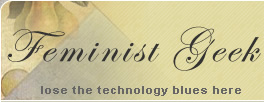Home >
history web assignment
For at least for or five decades, historians have paid increasingly more attention to women's role in history. Women make up approximately half the human race. Women have had an impact on and been affected by every major historic event and trend, sometimes as key players. This web assignment focuses on Victoria Claflin Woodhull Martin, an extraordinary social reformer - and one who is absent from many American history survey texts.
your assignment
- read
- the article "Legal Contender: Victoria C. Woodhull," an historical profile written by your professor
- the other two short Online Woodhull Biographies
-
at least 6 website listed below in the Woodhull Herstory Sites
-
 Primary source documents written by Woodhull or her contemporaries during the 1870s
Primary source documents written by Woodhull or her contemporaries during the 1870s -
 Secondary source materials about Woodhull written by historians, librarians, journalists, novelists, and playwrights
Secondary source materials about Woodhull written by historians, librarians, journalists, novelists, and playwrights - Examine these sites, reading at least one link about each aspect of Woodhull's career.
-
- questions for thought and discussion
- What have you learned about Victoria Woodhull from these websites?
- Compare and contrast the Internet-based information with the library-based information in Dr. Kullmann's article.
- Based on this experience, how would you evaluate the Internet as a source of information about history? about women's history?
![]() Legal Contender: Victoria C. Woodhull....: historical profile from The Women's Quarterly written by Susan Kullmann (Puz).
Legal Contender: Victoria C. Woodhull....: historical profile from The Women's Quarterly written by Susan Kullmann (Puz).
online Woodhull biographies
Note: Links open in a new browser tab.
![]() Information about Victoria Woodhull from the National Women's History Museum website.
Information about Victoria Woodhull from the National Women's History Museum website.
![]() UMD's Women's Studies Reading Room Biography: From the Women's Studies Picture Gallery, newspaper illustration of Woodhull trying to vote in 1871 with a short biographical sketch.
UMD's Women's Studies Reading Room Biography: From the Women's Studies Picture Gallery, newspaper illustration of Woodhull trying to vote in 1871 with a short biographical sketch.
![]() Topics in Chronicling America - Victoria Woodhull, Library of Congress information with important dates and links to sample articles published about Woodhull in her lifetime.
Topics in Chronicling America - Victoria Woodhull, Library of Congress information with important dates and links to sample articles published about Woodhull in her lifetime.
Woodhull herstory sites
Woodhull the politician |
|
Woodhull |
Library of Congress American Memory Collection primary source document: And the Truth shall make you Free - A Speech on the Principles of Social Freedom, Victoria Woodhull, lecture first delivered in Steinway Hall on November 20, 1871. |
Bourgeois feminist |
|
Newspaper editor |
|
| Woodhull & Claflin's Weekly |
A few 1871 and 1872 issues are available online on the NYS Historic Newspapers website |
 Woodhull from a late 20th/21st-century perspective
Woodhull from a late 20th/21st-century perspective
Play: Spirit and Flesh |
|
|
Woodhull as critic |
Voices of our Foremothers Prolife Feminism: anti-abortion quotes from 19th-century feminists including Woodhull and her sister Tennessee Claflin. |
| 1998 documentary | America's Victoria: Remembering Victoria Woodhull, 1998 documentary - "Little known 19th-century American feminist, Victoria Woodhull gets an overdue examination via rare archival photos, sketches and interviews from historians, writers and an admiring Gloria Steinem." |
| Other online resources | The Woodhull Presidential Library on victoria-woodhull.com |
| Victoria Woodhull was inducted into the National Women's Hall of Fame in 2001. |
![]() Equal Rights Party History Project -- collaborative history from University of Toledo. This site does not seem active anymore, so the description of the project from The Scout Report is included here.
Equal Rights Party History Project -- collaborative history from University of Toledo. This site does not seem active anymore, so the description of the project from The Scout Report is included here.
The Equal Rights Party History Project, provided by Professor Timothy Messer-Kruse of the University of Toledo, is an "experiment in participatory research" on the 545 women and men who founded the Equal Rights Party in May of 1872. Members such as Victoria Woodhull and Belva Lockwood are well known, but most are anonymous to history. This site attempts to address that oversight by encouraging interested Internauts to adopt a founder of the ERP who once lived in a place close to their hometown as a subject, research that subject, and report the findings back to the ERP project. At present the site contains a geographical database of ERP members, a brief history of the Party, research tips, and an explanation of how to send your information to the site. The ERP page is an interesting attempt at collaborative primary history that hopes to "level the ivory tower walls that have long isolated professional historians and the history they write from everyone else who make it and live it."
Original lesson developed for History 202, Spring 1997 at Cal Poly Pomona
